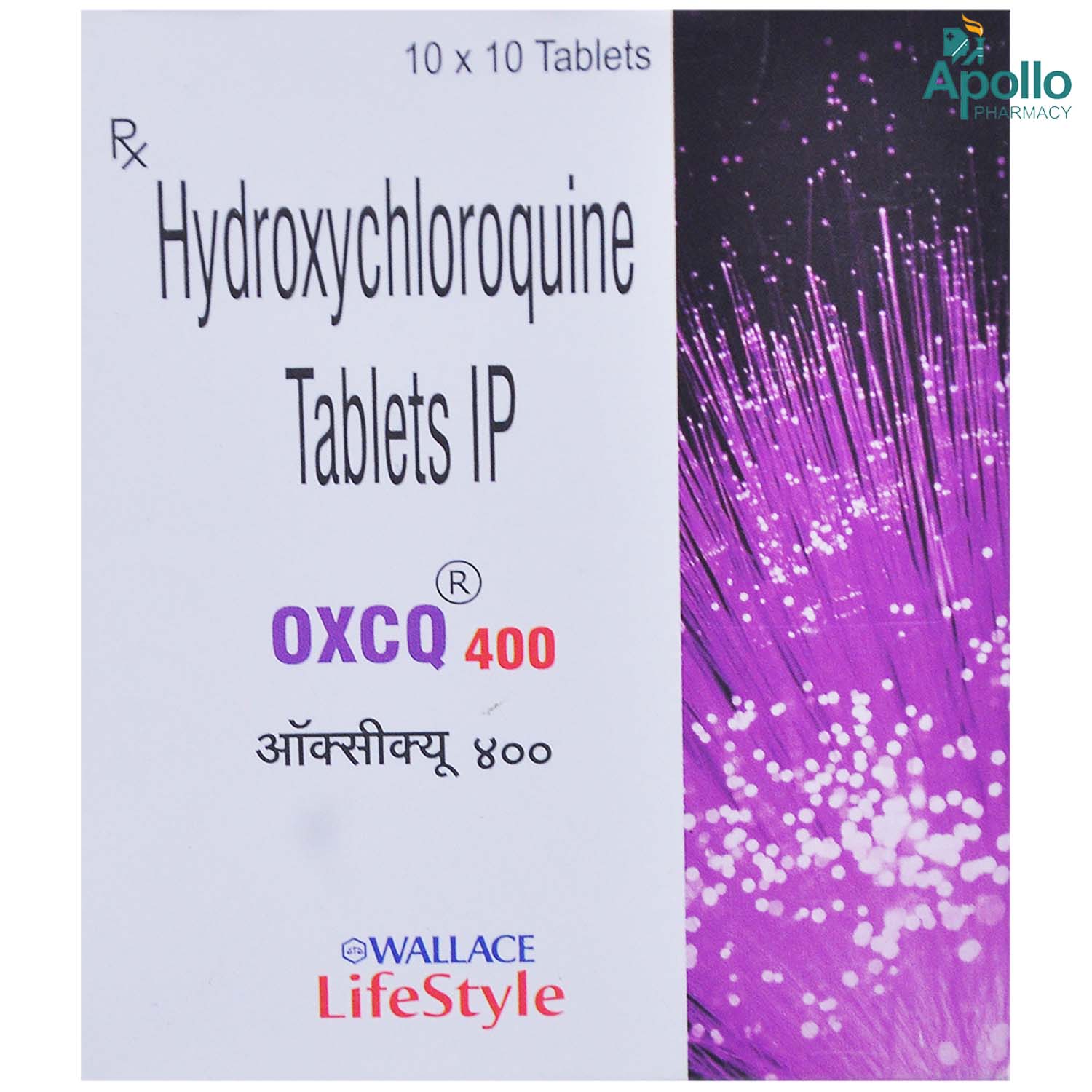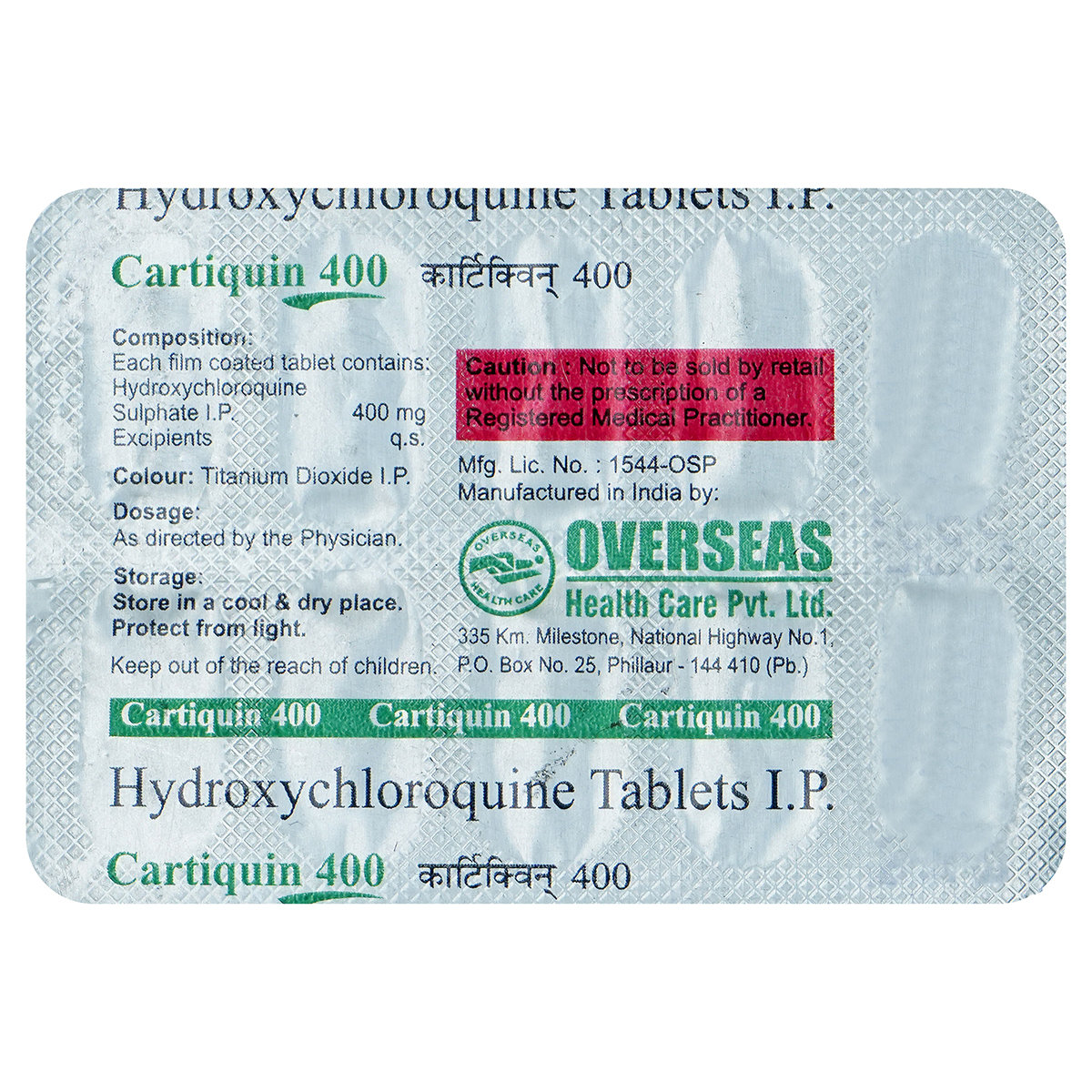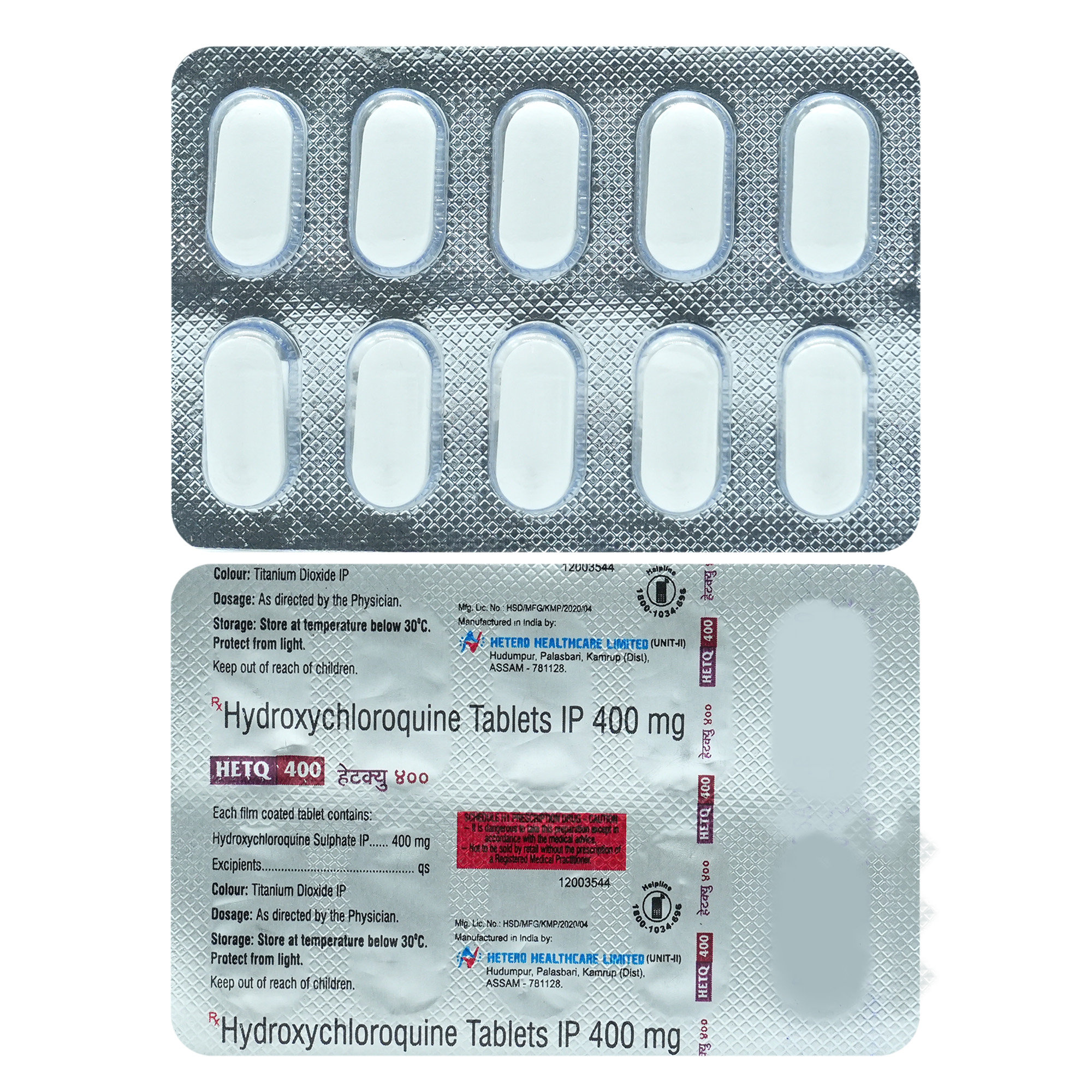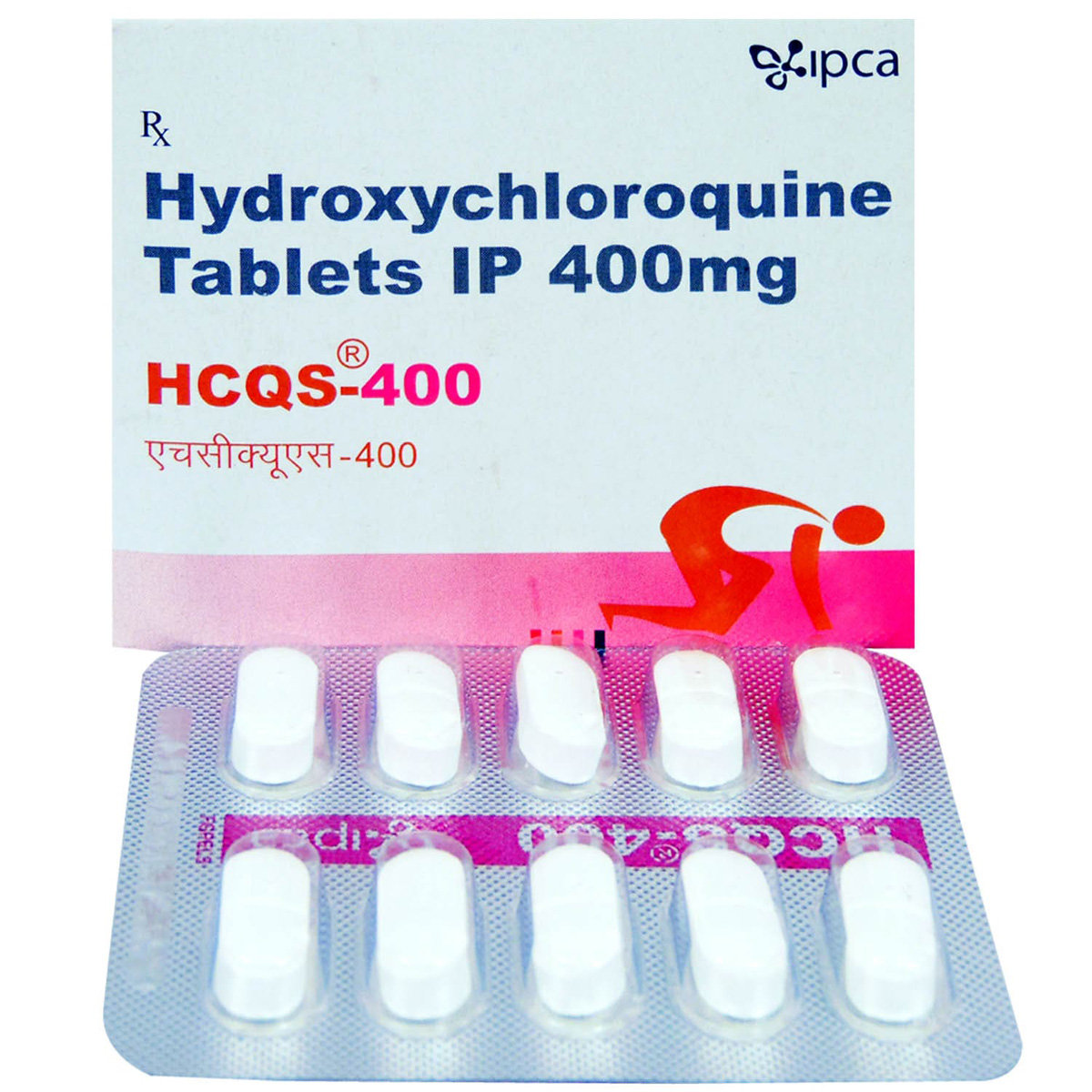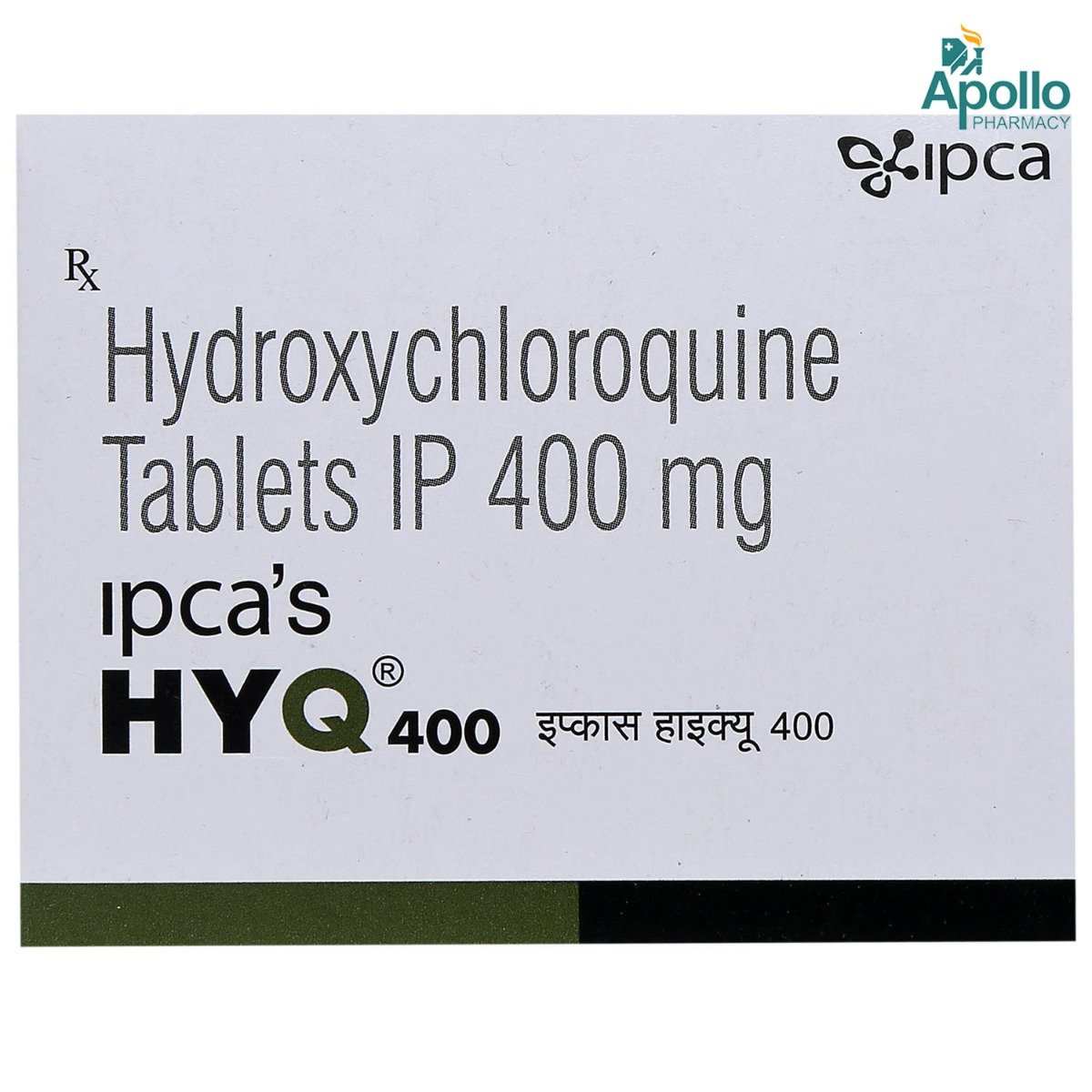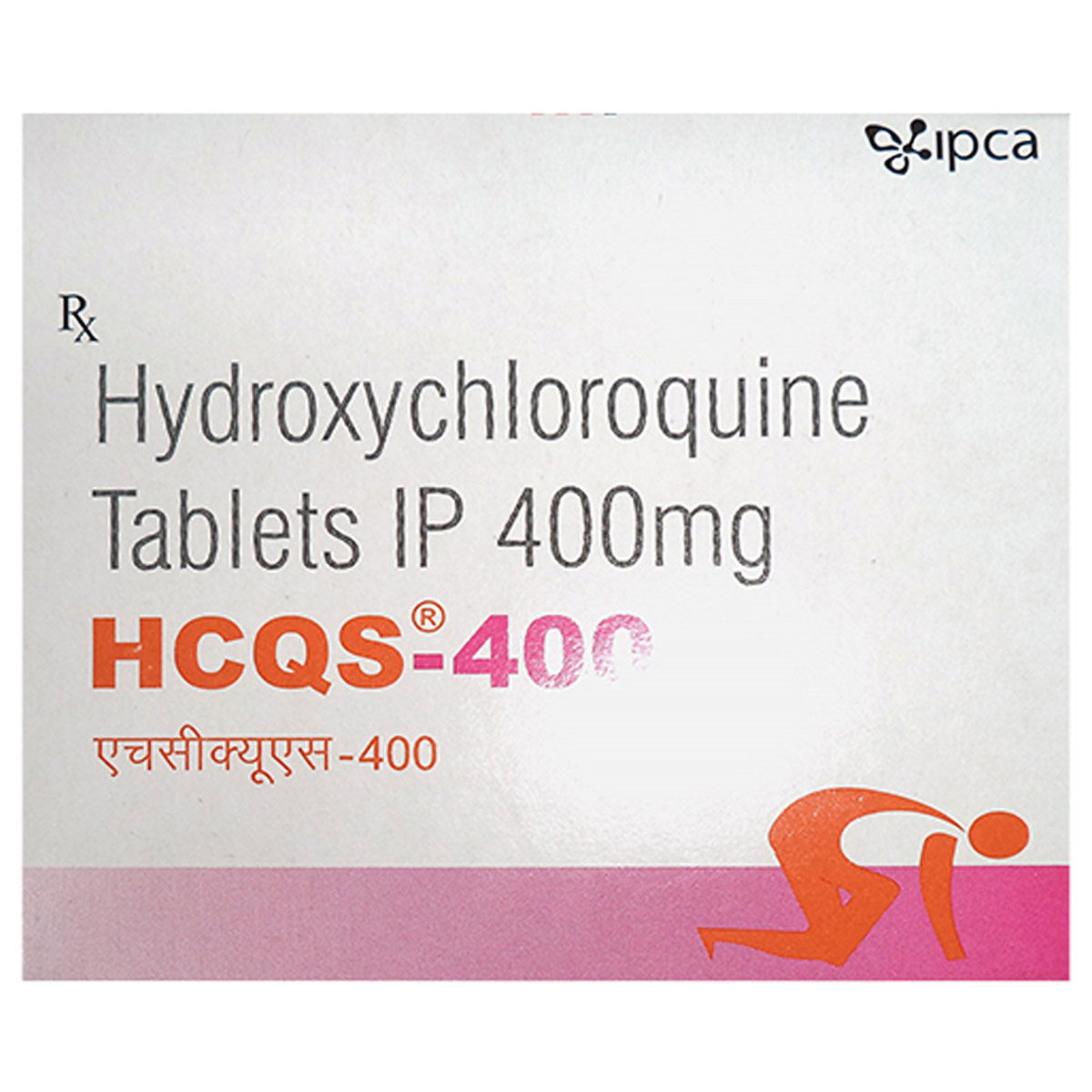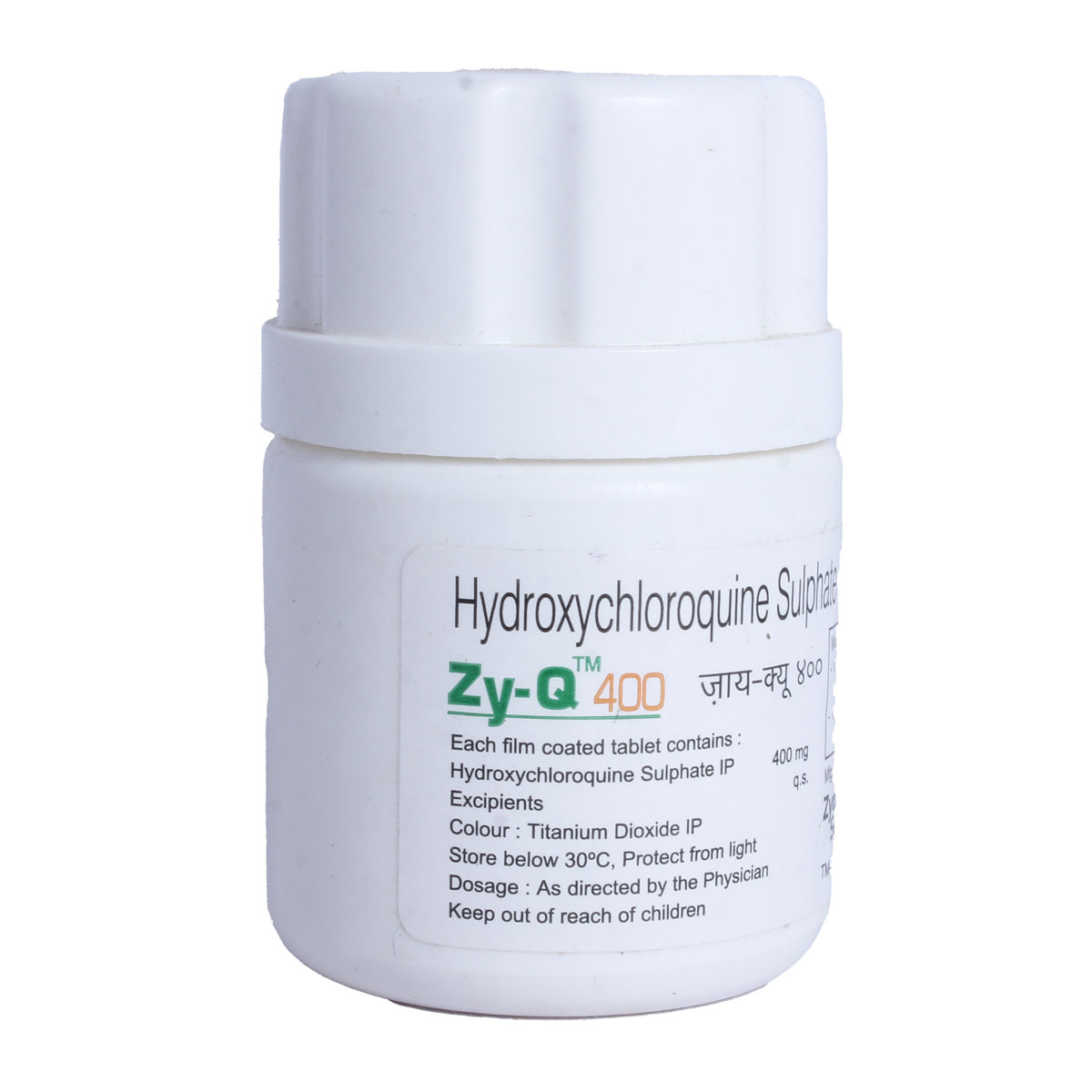- Home
- Q-Rado 400mg Tablet
Q-Rado 400mg Tablet Substitute
Q-Rado 400mg Tablet Substitute
Medicine Composition:
HYDROXYCHLOROQUINE-400MGAll Substitutes & Brand Comparisons
RX
Out of StockCiaclor 400mg Tablet
₹125
(₹11.25 per unit)
32% COSTLIERRX
Out of StockImulast-400mg Tablet 10's
Cipla Ltd
₹125
(₹11.25 per unit)
32% COSTLIERRX
Brioquin 400 mg Tablet 10's
Brinton Pharmaceuticals Ltd
₹129
(₹11.61 per unit)
36% COSTLIERRX
Out of StockEraquin 400mg Tablet
Saphnix Life Sciences
₹130.9
(₹11.78 per unit)
38% COSTLIERRX
Out of StockHqtor 400 mg Tablet 10's
Torrent Pharmaceuticals Ltd
₹137.5
(₹12.38 per unit)
45% COSTLIERRX
Out of StockACQN-400 Tablet 10's
Actus Health Care
₹130
(₹13.0 per unit)
53% COSTLIERRX
OXCQ 400 Tablet 10's
Wallace Pharmaceuticals Pvt Ltd
₹144.5
(₹13.01 per unit)
53% COSTLIERRX
Cartiquin 400 Tablet 10's
Overseas Health Care Pvt Ltd
₹144.5
(₹13.01 per unit)
53% COSTLIERRX
Hetq 400 Tablet 10's
Hetero Healthcare Pvt Ltd
₹144.5
(₹13.01 per unit)
53% COSTLIERRX
HCQS-400 Tablet 10's
Ipca Laboratories Ltd
₹147
(₹13.23 per unit)
55% COSTLIERRX
HYQ 400 Tablet 10's
Ipca Laboratories Ltd
₹147
(₹13.23 per unit)
55% COSTLIERRX
Vohq 400 mg Tablet 10's
Vasu Organics Pvt Ltd
₹147
(₹13.23 per unit)
55% COSTLIERRX
HCQS-400 mg Tablet 15's
Ipca Laboratories Ltd
₹221
(₹13.26 per unit)
56% COSTLIERRX
Hetquenil-400 Tablet 10's
Hetero Healthcare Pvt Ltd
₹154
(₹13.86 per unit)
63% COSTLIERRX
Zy-Q 400 Tablet 30's
Zydus Healthcare Ltd
₹434.5
(₹14.48 per unit)
70% COSTLIER

When Should You Consider Switching from Q-Rado 400mg Tablet?
Patients may explore substitutes in the following scenarios:
- High monthly cost of Q-Rado 400mg Tablet
- Non-availability in local pharmacies
- Generic recommendation by a doctor
- Side effects or better tolerability with alternatives
What to Know Before Switching
Before you switch from Q-Rado 400mg Tablet to another medicine, here are some important points to keep in mind:
Same salt, different brands:
Most substitutes contain the same active ingredient - HYDROXYCHLOROQUINE-400MG, but the fillers, coating, or manufacturing quality may vary slightly.
Consult your doctor first:
Even if the salt is the same, your doctor can confirm if the substitute is right for your condition, dosage, and health history.
Watch out for allergies or reactions:
Some people may react differently to certain brands due to inactive ingredients. If you notice any side effects, inform your doctor immediately.
Price ≠ effectiveness:
A lower-priced substitute doesn't mean it's less effective. Many generic medicines work just as well as branded ones.
Check the dosage form and strength:
Always match the substitute’s strength (e.g., 5mg, 10mg) and form (tablet, capsule, syrup) with what your doctor prescribed.
Uses
Q-Rado 400mg Tablet is used in the treatment of Type 2 diabetes mellitus, acute or chronic rheumatoid arthritis, systemic and discoid lupus erythematosus, and malaria. The detailed uses of Q-Rado 400mg Tablet are as follows:
- Malaria Treatment: Q-Rado 400mg Tablet is frequently used to treat and prevent malaria, especially in regions where the parasite that causes the disease is resistant to other drugs.
- Management of Rheumatoid Arthritis: By lowering inflammation and pain in afflicted joints, the drug can help reduce the symptoms of rheumatoid arthritis.
- Treatment for Lupus Erythematosus: Q-Rado 400mg Tablet is useful in controlling the symptoms of systemic lupus erythematosus (SLE), an autoimmune disease that can impact different body areas.
- Prevention of Some Autoimmune Illnesses: It can be used to avoid flare-ups in people with autoimmune diseases, which helps them manage their conditions over the long term.
- Diabetes Management: Q-Rado 400mg Tablet improves insulin sensitivity and increases insulin secretion, thereby helping manage diabetes.
Medicinal Benefits
- Hydroxychloroquine has diversified medical uses and works by reducing inflammation in people with autoimmune diseases.
- It helps treat type 2 diabetes mellitus and autoimmune conditions like rheumatoid arthritis, systemic lupus erythematosus, and malaria.
- For diabetes, it works by improving insulin sensitivity and increasing insulin secretion.
- In rheumatoid arthritis, this medicine acts as a mild immunosuppressant and disease-modifying anti-rheumatic agent and inhibits the production of rheumatoid factor.
- In malaria, it works by increasing the concentration of a toxic compound in the parasite that leads to its death.
- Hydroxychloroquine is an anti-thrombotic and anti-platelet agent that helps reduce abnormally elevated cholesterol levels.
- It also decreases the severity of skin lesions in systemic and discoid lupus erythematosus.
FAQs
The substitutes of Q-Rado 400mg Tablet contain the same active salt(s) - HYDROXYCHLOROQUINE-400MG. However, they may differ in price, manufacturing quality, and inactive ingredients. Speak to your doctor to find a suitable option.
Switching to a generic substitute medicine in the place of Q-Rado 400mg Tablet is often possible if it has the same salt, strength, and dosage form. But always check with your doctor before making any changes to your medication.
Generics versions of Q-Rado 400mg Tablet are typically more affordable because they don’t include the original brand's research, development, and marketing costs. They contain the same active ingredient and are approved for safety and effectiveness.
Most people don’t notice any difference. However, some may react to different fillers or coatings. If you notice any unusual symptoms after switching, consult your doctor.
Make sure the new medicine has the same active salt, strength, dosage form. Always confirm the change with your doctor or pharmacist.
Substitutes of Q-Rado 400mg Tablet meet the same safety and efficacy standards as Q-Rado 400mg Tablet, but small differences in absorption or formulation can exist. A doctor can help you choose the right one for your needs.
Yes. Substitutes of Q-Rado 400mg Tablet may vary in color, size, or shape due to differences in manufacturing and branding, but this does not affect how they work.
Yes, it’s generally safe to switch between multiple substitutes of Q-Rado 400mg Tablet if they have the same salt and strength. However, always inform your doctor so they can monitor how your body responds.
Yes, many people safely use substitutes of Q-Rado 400mg Tablet for long-term treatment. Just ensure it’s done under medical supervision.
If your symptoms stay under control or lab results remain stable, the substitute for Q-Rado 400mg Tablet is likely working well. Regular follow-ups with your doctor are important.
Absolutely. Even with the same salt, small differences can affect how your body responds when switching from Q-Rado 400mg Tablet to its substitute. Always consult your doctor before switching.
Q-Rado 400mg Tablet is used to treat type 2 diabetes mellitus, acute or chronic rheumatoid arthritis, dyslipidaemia (abnormally elevated cholesterol levels), systemic and discoid lupus erythematosus (autoimmune disease), polymorphous light eruption (a rash caused by sun exposure), and malaria.
Q-Rado 400mg Tablet contains Hydroxychloroquine, an anti-inflammatory drug that reduces inflammation in people with autoimmune disorders. Hydroxychloroquine improves insulin sensitivity in diabetes and has a hypoglycaemic effect. It is a disease-modifying anti-rheumatic agent that inhibits the production of rheumatoid factor in rheumatoid arthritis. It also decreases the elevated cholesterol levels in the body and reduces the risk of cardiovascular diseases. Hydroxychloroquine is also an anti-malarial drug that treats malaria by increasing the concentration of a toxic compound in the parasite that leads to its death.
Inform your doctor in advance if you have any liver or kidney problems, heart diseases, diabetes, G-6-PD (glucose-6 phosphate dehydrogenase) deficiency (a genetic enzyme deficiency), high blood pressure, serious stomach or gut problems, nervous system problems, psoriasis, porphyria (a blood disorder), history of heart attack (myocardial infarction), electrolyte imbalance, fits, and allergic reactions to medicines.
Q-Rado 400mg Tablet may cause drug-induced retinopathy (a disease related to the retina) when taken more than recommended. You may not be advised Q-Rado 400mg Tablet by your doctor if you have vision changes or damage to your retina. If the doctor has prescribed you this medicine knowing your medical history, you may be further advised to take ophthalmological examinations, including visual acuity, ophthalmoscopy, fundoscopy, and visual field tests. If there are any changes in these examinations, you may be asked to discontinue the treatment.
Hydroxychloroquine may sometimes affect mental health and cause problems like irrational thoughts, anxiety, hallucinations, feeling confused or feeling depressed, including thoughts of self-harm or suicide. Hence, you should speak to your doctor before using Q-Rado 400mg Tablet.
The side effects of Q-Rado 400mg Tablet include headache, blurred vision, stomach pain, nausea, vomiting, and diarrhoea. If these side effects persist or worsen, please consult your doctor.
Q-Rado 400mg Tablet is currently under study in several clinical trials (research studies in human beings) to treat patients with COVID-19 (the illness caused by the novel coronavirus) and to prevent the spread of new coronavirus infection. Q-Rado 400mg Tablet has shown some activity against the novel coronavirus in laboratory studies (in vitro studies). However, to determine whether Q-Rado 400mg Tablet is effective against the novel coronavirus, further evidence is needed.
The use of Q-Rado 400mg Tablet for prevention of novel coronavirus infection has been recommended by the national task force for COVID-19 (constituted by ICMR). It is only for use in certain high-risk populations (ie people at high risk of exposure to the virus) or emergency situations. It can be used for prophylaxis in case of asymptomatic healthcare workers involved in the care of confirmed or suspected cases of COVID-19 and asymptomatic household contacts of laboratory-confirmed cases.
No, we do not need to maintain a stock of Q-Rado 400mg Tablet. If you think you may have the new coronavirus infection, consult a doctor immediately and follow their advice strictly. Do not self-administer Q-Rado 400mg Tablet. Remember that it should be taken only if prescribed by a doctor.
Your doctor will prescribe the dose and duration of Q-Rado 400mg Tablet. Follow your doctor’s instructions strictly.
Q-Rado 400mg Tablet should be taken as advised by the doctor. Take it with a meal or glass of milk to prevent nausea and stomach upset. Swallow it as whole. Do not crush, break or chew it.
If someone becomes symptomatic or shows symptoms of novel coronavirus such as dry cough, high fever, difficulty in breathing or tiredness while taking Q-Rado 400mg Tablet, they should consult their doctor immediately. The doctor will recommend if they require isolation or if they need to get tested for the novel coronavirus. They need to follow all the instructions given by the doctor.
Q-Rado 400mg Tablet may take a few weeks or months to show improvement in your symptoms of rheumatoid arthritis or other autoimmune diseases. However, it is important that you be patient and keep taking it regularly. In the meanwhile, your doctor may prescribe some additional medications to provide temporary relief from the symptoms.
Before starting treatment with Q-Rado 400mg Tablet, you must get an eye test and it should be repeated every12 months. Additionally, your doctor may recommend routine checks for your blood counts (CBC) and liver function test (LFT). If any abnormality is detected, your doctor may discontinue Q-Rado 400mg Tablet.
Q-Rado 400mg Tablet contains Hydroxychloroquine, an anti-malarial drug with anti-inflammatory and immunomodulatory properties. It is neither an opioid, nor a painkiller nor a steroid. Q-Rado 400mg Tablet increases the concentration of a toxic compound in the parasite that leads to its death. It reduces inflammation in people with autoimmune disorders. It is a disease-modifying anti-rheumatic agent that inhibits the production of rheumatoid factor in rheumatoid arthritis.
Yes, you may take ibuprofen with Q-Rado 400mg Tablet as there are no interactions found between them. However, always please consult your doctor before taking other medicines with Q-Rado 400mg Tablet.
If you stop taking Q-Rado 400mg Tablet without doctor’s consultation, your illness may worsen. Therefore, even if you start feeling better, do not stop taking Q-Rado 400mg Tablet without first consulting your doctor.
Yes, you need to be careful while using Q-Rado 400mg Tablet if you are diabetic as it may lower your blood glucose levels to dangerous levels so much resulting in loss of consciousness (severe hypoglycemia). Make sure to monitor your blood glucose levels regularly and if it begins to drop, contact your doctor immediately. Your doctor may change the doses of your anti-diabetic medications as per your blood glucose levels.
Yes, you may take Q-Rado 400mg Tablet but maintain a gap of minimum 4 hours between Q-Rado 400mg Tablet and antacid. If this gap is not maintained, then the antacid may interfere with the working or absorption of Q-Rado 400mg Tablet. Thereby, you may not experience the full benefits of Q-Rado 400mg Tablet.



